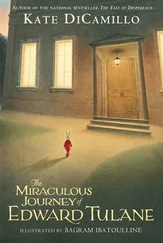Edward Forster - The Longest Journey
Здесь есть возможность читать онлайн «Edward Forster - The Longest Journey» весь текст электронной книги совершенно бесплатно (целиком полную версию без сокращений). В некоторых случаях можно слушать аудио, скачать через торрент в формате fb2 и присутствует краткое содержание. Жанр: Классическая проза, на английском языке. Описание произведения, (предисловие) а так же отзывы посетителей доступны на портале библиотеки ЛибКат.
- Название:The Longest Journey
- Автор:
- Жанр:
- Год:неизвестен
- ISBN:нет данных
- Рейтинг книги:5 / 5. Голосов: 1
-
Избранное:Добавить в избранное
- Отзывы:
-
Ваша оценка:
- 100
- 1
- 2
- 3
- 4
- 5
The Longest Journey: краткое содержание, описание и аннотация
Предлагаем к чтению аннотацию, описание, краткое содержание или предисловие (зависит от того, что написал сам автор книги «The Longest Journey»). Если вы не нашли необходимую информацию о книге — напишите в комментариях, мы постараемся отыскать её.
The Longest Journey — читать онлайн бесплатно полную книгу (весь текст) целиком
Ниже представлен текст книги, разбитый по страницам. Система сохранения места последней прочитанной страницы, позволяет с удобством читать онлайн бесплатно книгу «The Longest Journey», без необходимости каждый раз заново искать на чём Вы остановились. Поставьте закладку, и сможете в любой момент перейти на страницу, на которой закончили чтение.
Интервал:
Закладка:
"Oh yes, he's there," he called, and after a moment's hesitation came out.
"Would he come?"
"No. I shouldn't say so," replied Leighton, with a furtive glance. He knew that Rickie was a milksop. "First night, you know, sir, among old friends."
"Yes, I know," said Rickie. "But he might like a turn down the village. It looks stuffy inside there, and poor fun probably to watch others drinking."
Leighton shut the door.
"What was that he called after you?"
"Oh, nothing. A man when he's drunk—he says the worst he's ever heard. At least, so they say."
"A man when he's drunk?"
"Yes, Sir."
"But Stephen isn't drinking?"
"No, no."
"He couldn't be. If he broke a promise—I don't pretend he's a saint. I don't want him one. But it isn't in him to break a promise."
"Yes, sir; I understand."
"In the train he promised me not to drink—nothing theatrical: just a promise for these few days."
"No, sir." "'No, sir,'" stamped Rickie. "'Yes! no! yes!' Can't you speak out? Is he drunk or isn't he?"
Leighton, justly exasperated, cried, "He can't stand, and I've told you so again and again."
"Stephen!" shouted Rickie, darting up the steps. Heat and the smell of beer awaited him, and he spoke more furiously than he had intended. "Is there any one here who's sober?" he cried. The landlord looked over the bar angrily, and asked him what he meant. He pointed to the deep settles. "Inside there he's drunk. Tell him he's broken his word, and I will not go with him to the Rings."
"Very well. You won't go with him to the Rings," said the landlord, stepping forward and slamming the door in his face.
In the room he was only angry, but out in the cool air he remembered that Stephen was a law to himself. He had chosen to break his word, and would break it again. Nothing else bound him. To yield to temptation is not fatal for most of us. But it was the end of everything for a hero.
"He's suddenly ruined!" he cried, not yet remembering himself. For a little he stood by the elm-tree, clutching the ridges of its bark. Even so would he wrestle tomorrow, and Stephen, imperturbable, reply, "My body is my own." Or worse still, he might wrestle with a pliant Stephen who promised him glibly again. While he prayed for a miracle to convert his brother, it struck him that he must pray for himself. For he, too, was ruined.
"Why, what's the matter?" asked Leighton. "Stephen's only being with friends. Mr. Elliot, sir, don't break down. Nothing's happened bad. No one's died yet, or even hurt themselves." Ever kind, he took hold of Rickie's arm, and, pitying such a nervous fellow, set out with him for home. The shoulders of Orion rose behind them over the topmost boughs of the elm. From the bridge the whole constellation was visible, and Rickie said, "May God receive me and pardon me for trusting the earth."
"But, Mr. Elliot, what have you done that's wrong?"
"Gone bankrupt, Leighton, for the second time. Pretended again that people were real. May God have mercy on me!"
Leighton dropped his arm. Though he did not understand, a chill of disgust passed over him, and he said, "I will go back to The Antelope. I will help them put Stephen to bed."
"Do. I will wait for you here." Then he leant against the parapet and prayed passionately, for he knew that the conventions would claim him soon. God was beyond them, but ah, how far beyond, and to be reached after what degradation! At the end of this childish detour his wife awaited him, not less surely because she was only his wife in name. He was too weak. Books and friends were not enough. Little by little she would claim him and corrupt him and make him what he had been; and the woman he loved would die out, in drunkenness, in debauchery, and her strength would be dissipated by a man, her beauty defiled in a man. She would not continue. That mystic rose and the face it illumined meant nothing. The stream—he was above it now—meant nothing, though it burst from the pure turf and ran for ever to the sea. The bather, the shoulders of Orion-they all meant nothing, and were going nowhere. The whole affair was a ridiculous dream.
Leighton returned, saying, "Haven't you seen Stephen? They say he followed us: he can still walk: I told you he wasn't so bad."
"I don't think he passed me. Ought one to look?" He wandered a little along the Roman road. Again nothing mattered. At the level-crossing he leant on the gate to watch a slow goods train pass. In the glare of the engine he saw that his brother had come this way, perhaps through some sodden memory of the Rings, and now lay drunk over the rails. Wearily he did a man's duty. There was time to raise him up and push him into safety. It is also a man's duty to save his own life, and therefore he tried. The train went over his knees. He died up in Cadover, whispering, "You have been right," to Mrs. Failing.
She wrote of him to Mrs. Lewin afterwards as "one who has failed in all he undertook; one of the thousands whose dust returns to the dust, accomplishing nothing in the interval. Agnes and I buried him to the sound of our cracked bell, and pretended that he had once been alive. The other, who was always honest, kept away."
XXXV
From the window they looked over a sober valley, whose sides were not too sloping to be ploughed, and whose trend was followed by a grass-grown track. It was late on Sunday afternoon, and the valley was deserted except for one labourer, who was coasting slowly downward on a rosy bicycle. The air was very quiet. A jay screamed up in the woods behind, but the ring-doves, who roost early, were already silent. Since the window opened westward, the room was flooded with light, and Stephen, finding it hot, was working in his shirtsleeves.
"You guarantee they'll sell?" he asked, with a pen between his teeth. He was tidying up a pile of manuscripts.
"I guarantee that the world will be the gainer," said Mr. Pembroke, now a clergyman, who sat beside him at the table with an expression of refined disapproval on his face.
"I'd got the idea that the long story had its points, but that these shorter things didn't—what's the word?"
"'Convince' is probably the word you want. But that type of criticism is quite a thing of the past. Have you seen the illustrated American edition?"
"I don't remember."
"Might I send you a copy? I think you ought to possess one."
"Thank you." His eye wandered. The bicycle had disappeared into some trees, and thither, through a cloudless sky, the sun was also descending.
"Is all quite plain?" said Mr. Pembroke. "Submit these ten stories to the magazines, and make your own terms with the editors. Then—I have your word for it—you will join forces with me; and the four stories in my possession, together with yours, should make up a volume, which we might well call 'Pan Pipes.'"
"Are you sure `Pan Pipes' haven't been used up already?"
Mr. Pembroke clenched his teeth. He had been bearing with this sort of thing for nearly an hour. "If that is the case, we can select another. A title is easy to come by. But that is the idea it must suggest. The stories, as I have twice explained to you, all centre round a Nature theme. Pan, being the god of—"
"I know that," said Stephen impatiently.
"—Being the god of—"
"All right. Let's get furrard. I've learnt that."
It was years since the schoolmaster had been interrupted, and he could not stand it. "Very well," he said. "I bow to your superior knowledge of the classics. Let us proceed."
"Oh yes the introduction. There must be one. It was the introduction with all those wrong details that sold the other book."
"You overwhelm me. I never penned the memoir with that intention."
"If you won't do one, Mrs. Keynes must!"
"My sister leads a busy life. I could not ask her. I will do it myself since you insist."
Читать дальшеИнтервал:
Закладка:
Похожие книги на «The Longest Journey»
Представляем Вашему вниманию похожие книги на «The Longest Journey» списком для выбора. Мы отобрали схожую по названию и смыслу литературу в надежде предоставить читателям больше вариантов отыскать новые, интересные, ещё непрочитанные произведения.
Обсуждение, отзывы о книге «The Longest Journey» и просто собственные мнения читателей. Оставьте ваши комментарии, напишите, что Вы думаете о произведении, его смысле или главных героях. Укажите что конкретно понравилось, а что нет, и почему Вы так считаете.












